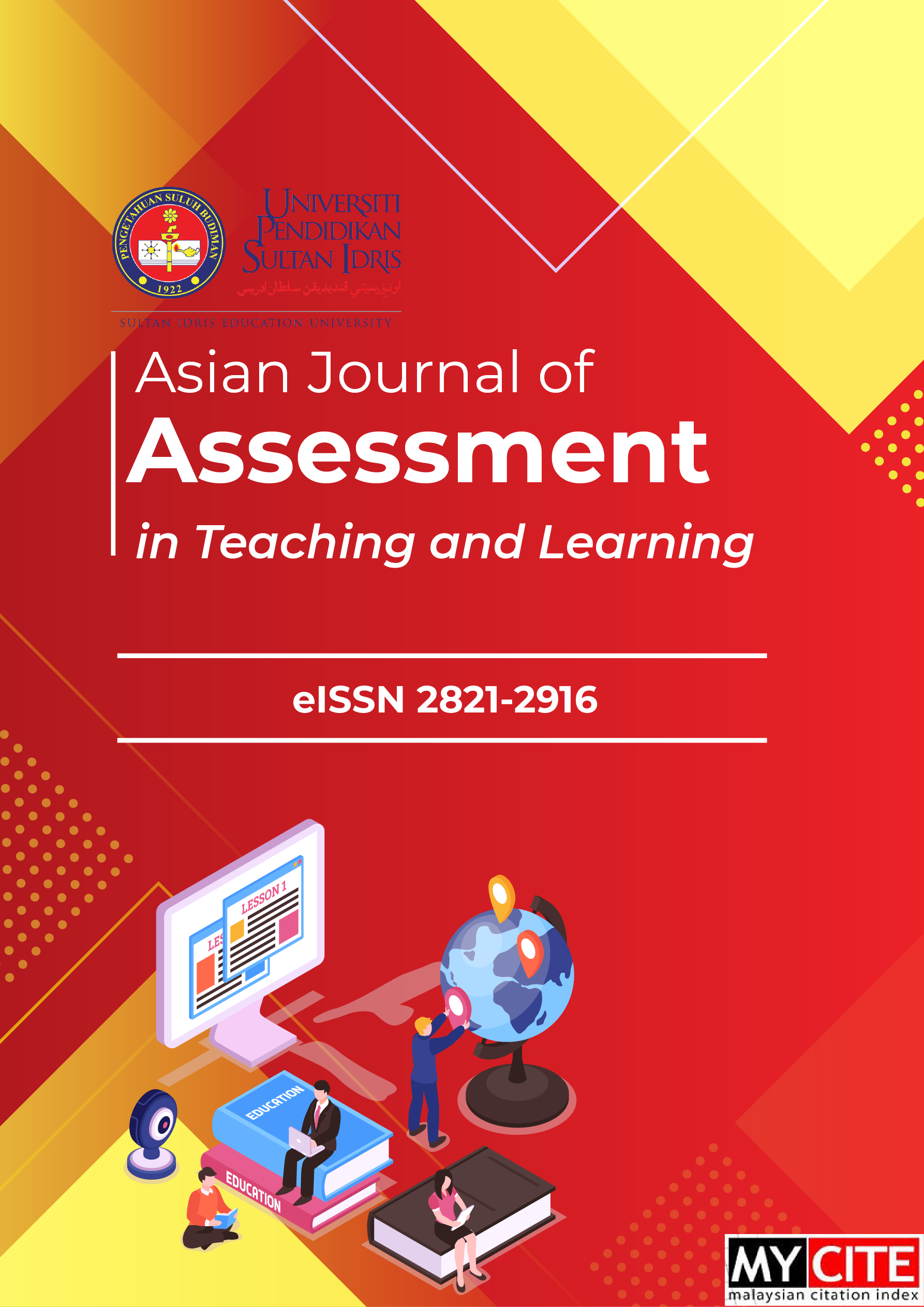School Leaders’ Perceptions on the Importance of Acquiring Skills in Mentoring Staffs and Engaging Parents
DOI:
https://doi.org/10.37134/ajatel.vol13.1.6.2023Keywords:
Academic Performance, Headmaster, Principal, Teaching and Learning, Student OutcomeAbstract
Pursuing study at the higher learning institution largely depends on the academic performance of a student. However, struggles of school community in getting their students ready for college are reported. Studies consistently show that school leadership has a great influence on students’ learning, a result of quality teaching and learning. There are two main roles of school leaders that affects the teaching and learning quality: mentoring the teachers and engaging the parents in the students’ learning. Studies about the school leaders’ perception on acquiring these two skills are lacking. This study aims to survey the school leaders’ perception towards the importance of having these two skills with regards to the gender, age group, school level (primary or secondary school), and school location using a questionnaire. It is distributed via online platform to all the school leaders of a state of which 477 had responded. The results show that the school leaders regard both skills as important. Statistically significant difference was reported in both skills by school location and in skills on mentoring staffs by the school leaders’ age group.
Downloads
References
Alinsunurin, J. (2020). School learning climate in the lens of parental involvement and school leadership: lessons for inclusiveness among public schools. Smart Learning Environments, 7, 25. https://doi.org/10.1186/s40561-020-00139-2
Barr, S., & Saltmarsh, S. (2014). It all comes down to the leadership: The role of the school principal in fostering parent-school engagement. Educational Management Administration & Leadership, 42(4), 491-505.
Bush, T. (2021). Assessing successful school leadership: What do we know? Educational Management Administration & Leadership, 49(5), 687–689. https://doi.org/10.1177/17411432211034675
Cruickshank, V. (2017) The influence of school leadership on student outcomes. Open Journal of Social Sciences, 5, 115-123. https://doi.org/10.4236/jss.2017.59009
Dhuey, E., & Smith, J. (2014) How important are school principals in the production of student achievement? Canadian Journal of Economics, 47, 634-663. https://doi.org/10.1111/caje.12086
Fletcher, E. C., Jr., Smith, C. A. S., & Hernandez-Gantes, V. M. (2021). IT takes a village: A case study of internal and external supports of an urban high school magnet career academy. Urban Review, 53(4), 681-707. https://doi.org/10.1007/s11256-020-00593-9
Gray, J. A. (2018). Leadership-focused coaching: A research-based approach for supporting aspiring leaders. International Journal of Educational Leadership Preparation, 13(1), 100-120.
Green, T., & Gooden, M. (2014). Transforming out-of-school challenges into opportunities: Community school reform in the urban Midwest. Urban Education, 49, 930-954.
Jeynes, W. H. (2018). A practical model for school leaders to encourage parental involvement and parental engagement. School Leadership and Management, 38(2), 147-163. https://doi.org/10.1080/13632434.2018.1434767.
Leithwood, K., & Day, C. (2007). Starting with what we know. In C. Day and K. Leithwood (Eds.), Successful principal leadership in times of change (pp. 1-15). Dordrecht: Springer. https://doi.org/10.1007/1-4020-5516-1_1
Leithwood, K., Harris, A., & Hopkins, D. (2008). Seven strong claims about successful school leadership. School Leadership and Management, 28(1), 27-42.
Leithwood, K., Harris, A., & Hopkins, D. (2020). Seven strong claims about successful school leadership revisited. School Leadership and Management, 40(1), 5-22. doi:10.1080/13632434.2019.1596077
Leithwood, K., Sun, J., & Pollock, K. (Eds.) (2017). How school leaders contribute to student success: The four paths framework. New York: Springer. https://doi.org/10.1007/978-3-319-50980-8
Martínez, M. M., Molina-López, M. M., & de Cabo, R. M. (2021). Explaining the gender gap in school principalship: A tale of two sides. Educational Management Administration & Leadership, 49(6), 863-882. https://doi.org/10.1177/1741143220918258
Ministry of Education Malaysia (2013). Malaysia education blueprint 2013–2025. https://www.moe.gov.my/en/muat-turun/penerbitan-dan-jurnal/pppm-2013-2025-pendidikan-prasekolah-hingga-lepas-menengah/1207-malaysia-education-blueprint-2013-2025/file
Mulford, B. (2003). School leaders: Challenging roles and impact on teacher and school effectiveness (OECD commisioned paper). Faculty of Education, University of Tasmania.
Northouse, P. G. (2010). Leadership theory and practice (5th ed.). Sage.
OECD (2021). Education at a glance 2016: OECD indicators. OECD Publishing.
Schleicher, A. (Ed.) (2012), Preparing teachers and developing school leaders for the 21st century: Lessons from around the world. OECD Publishing. https://doi.org/10.1787/9789264174559-en
Silins, H. and Mulford, B. (2004). Schools as learning organizations: Effects on teacher leadership and student outcomes. School Effectiveness and School Improvement, 15, 443-466. https://doi.org/10.1080/09243450512331383272
White, C. (2015). The creation and validation of an instrument to measure school STEM culture. (Doctorate Dissertation). Clemson University, South Carolina, United States.
Downloads
Published
How to Cite
Issue
Section
License
Copyright (c) 2023 Chin Ying Liew, Sie Hoe Lau, Siew Eng Ling, Howe Eng Tang

This work is licensed under a Creative Commons Attribution-NonCommercial-ShareAlike 4.0 International License.





